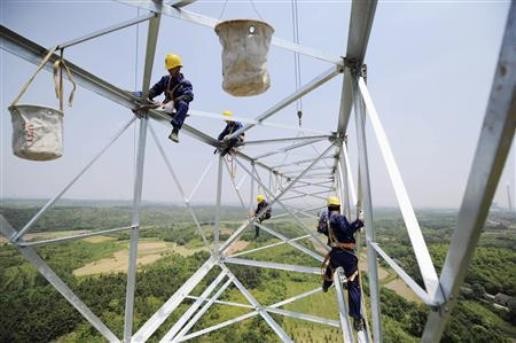State Grid Corp., one of the world's biggest utility companies, is striving to build a global energy network through a new unit, which is expected to attract $50 trillion worth of investment by 2050, sources said on Tuesday, Feb. 2.
A report published by china.org.cn said that State Grid, also the largest electric power transmission and distribution company in China, had established a company last year to develop what its President Liu Zhenya called a "global energy Internet" through a massive electricity grid sharing renewables from all over the world.
Liu was quoted as saying at a recent forum on energy investment and funding in Hong Kong that the Beijing-based company will have offices in New York, Paris, Rio de Janeiro and Johannesburg.
"To create a global energy Internet is to build an energy-related infrastructure covering different countries, including power generation facilities, transmission networks and energy transportation assets," Liu said.
According to the report, the state company is studying the feasibility of a pilot program on power transmission not only among Asian countries but also between Asia and Europe as well as between Africa and Europe.
A global energy Internet is a huge capital-intensive project, and Li Ronghua, its deputy chief engineer, said that the project is expected to attract $50 trillion of investment by 2050.
"Investment opportunities will come from major projects such as power development, power grid construction, and research and innovation," Li said.
Experts said that State Grid, with its plan to build a vast ultra-high voltage transmission network in the world's largest energy-consuming market, could leverage its domestic experience to export its technology and equipment abroad.
Liu said that ultra-high voltage transmission lines would enable the effective use of clean energy and reduce emission from fossil fuels. He said that through these connections clean energy can be distributed, while smart grids, connecting billions of households to the Internet, are the key in the process.
Huawei Technologies Co. Ltd., a Chinese tech giant, has expressed support for the global Internet of energy, which will provide the technology for State Grid's smart grid.
"State Grid has utility assets in many countries but its ultimate goal is to export both grid transmission technology and equipment," Lu Jinyong, a professor at the University of International Business and Economics in Beijing, said, adding that the Chinese company can also provide more stable and price-competitive technologies than other countries.
The report said that the global expansion of State Grid started in 2010, after it acquired a major stake in Brazil's electricity grid.



























